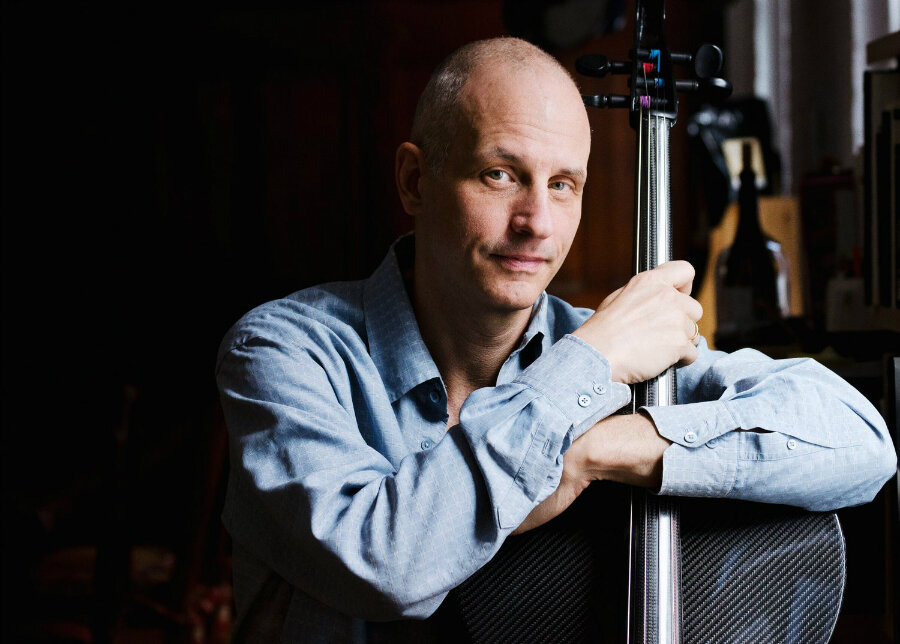Organization and Acceptance: Erik Friedlander Speaks
 This Saturday, The Jazz Gallery is teaming up with the Polish Jazztopad Festival to present a night of international improvisational exchange. Representing Poland will be the Wójciński/Szmańda Quartet. Based in Warsaw, the group is made up of the Wójciński siblings on trumpet, piano, and bass, as well as drummer Krzysztof Szmańda. The group first gathered in the studio in 2014, releasing their electric interplay on record last year (which you can check out below).Representing the United States is cellist Erik Friedlander. As a staple of the downtown jazz and improv scene for three decades, Friedlander has been a close collaborator of many musical luminaries, including Laurie Anderson, Dave Douglas, and John Zorn. He's released dozens of diverse albums under his own name, including 2016's Rings, featuring multi-keyboardist Shoko Nagai and percussionist Satoshi Takeishi. We caught up with Friedlander via Skype to hear about the origins of this project and his thoughts on the cello as a jazz instrument.
This Saturday, The Jazz Gallery is teaming up with the Polish Jazztopad Festival to present a night of international improvisational exchange. Representing Poland will be the Wójciński/Szmańda Quartet. Based in Warsaw, the group is made up of the Wójciński siblings on trumpet, piano, and bass, as well as drummer Krzysztof Szmańda. The group first gathered in the studio in 2014, releasing their electric interplay on record last year (which you can check out below).Representing the United States is cellist Erik Friedlander. As a staple of the downtown jazz and improv scene for three decades, Friedlander has been a close collaborator of many musical luminaries, including Laurie Anderson, Dave Douglas, and John Zorn. He's released dozens of diverse albums under his own name, including 2016's Rings, featuring multi-keyboardist Shoko Nagai and percussionist Satoshi Takeishi. We caught up with Friedlander via Skype to hear about the origins of this project and his thoughts on the cello as a jazz instrument.
Piotr Turkiewicz invited me to the Jazztopad Festival in Wroclaw, Poland two or three years ago. He commissioned a premiere and what resulted was a piece called Kore, which was a piece for small orchestra and cello. It was super exciting. Piotr is one of these great presenters who has such a love of music and is curious and is just a good guy—I am really glad that I can call him a friend. He's really been a great proponent of the Polish scene. The last couple of years, I've gone to Dizzy's Club Coca-Cola to see some of the Polish jazz groups and it's been great.This year, he invited me to participate in the New York edition of the Jazztopad Festival with the Wójciński/Szmańda Quartet. They like to do a lot of free improvisation, pieces with loose structures, and they're very good at it. I have a feeling our concert will be a mix of organization and structures by design and free playing. One thing we're going to do a lot of is dividing up into groups, like different combinations of duos—bass and cello, bass and piano, trumpet and cello, and so on.In terms of fitting into a preexisting group, I feel it's less about being a cello player and more about being a musician in general. It's about getting on the same page in terms of how the music flows, and making sure we can all be creative together. I'm always looking for moments—moments of clarity, moments of inspiration, and hope to stay away from moments of boredom.The cello in jazz is a tricky proposition. I feel when I play pizzicato like a bass player, it fits in really well. When I play with a bow, I feel it's a much more modern sound—it's less "jazz" per se, it's something else. The cello can take on a number of different roles then—I'll comp, I'll play bass lines, I'll play melodies, textures, sounds. With that in mind, the cello needs some kind of acceptance from the musical material and the other players. I'm really excited to see what happens.
Erik Friedlander and the Wójciński/Szmańda Quartet play The Jazz Gallery on Saturday, June 24th, 2017. The group features Mr. Friedlander on cello, Szymon Wójciński on piano, Maurycy Wójciński on trumpet, Ksawery Wójciński on bass, and Krzysztof Szmańda on drums. Sets are at 7:30 and 9:30 P.M. $22 general admission ($12 for members) for each set. Purchase tickets here.The American edition of the Jazztopad Festival is presented by the National Forum of Music, the Polish Cultural Institute New York, in collaboration with Unsound Festival, Jazz at Lincoln Center, National Sawdust, The Jazz Gallery, Joe’s Pub at the Public Theater, Millennium Stage at the Kennedy Center, Victoria Jazz Festival and TD Vancouver International Jazz Festival. Co-Partners: The Adam Mickiewicz Institute / Culture.pl, Embassy of the Republic of Poland in Washington, D.C.
